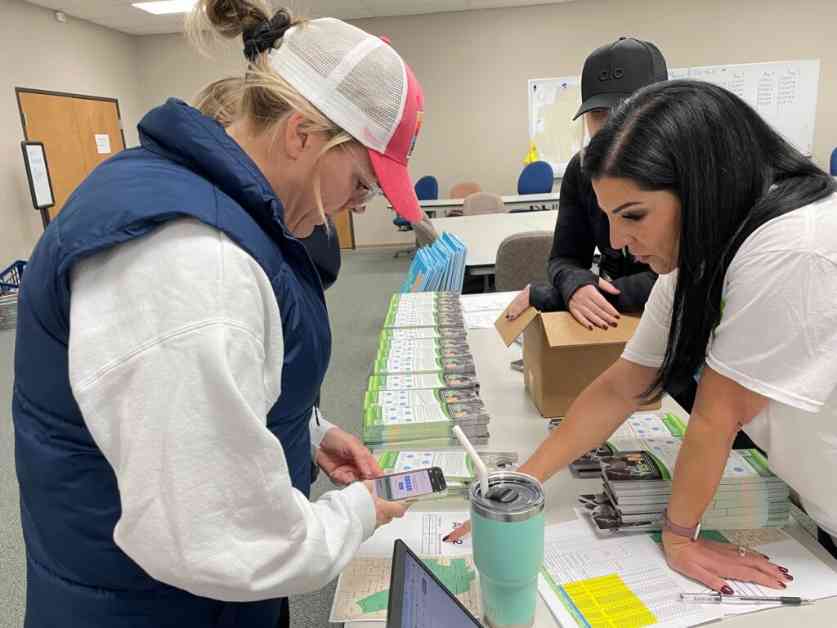Teachers and Conservatives Clash in Local School Board Battles
Elk Grove Unified’s director of elementary school education, Jodi Boyle, is gearing up in support of Measure N, a school facilities bond, receiving last-minute instructions and supplies from the Elk Grove Education Association. This election cycle, California school board races have captured the spotlight, drawing increased attention from the California Teachers Association (CTA) and the California Republican Party, among others, who are actively engaging in the battle for local school board seats on Nov. 5.
CTA and Conservatives Amp Up Efforts
The CTA has spearheaded a campaign to mobilize local unions and educators in school board elections, emphasizing the importance of teachers’ involvement in local races. David Goldberg, President of the CTA, highlighted the union’s increased focus on leveraging the popularity of educators to win local elections, recognizing the significant impact teachers can have on shaping the electoral landscape. The CTA’s efforts are met with a counter-campaign from conservative groups, including county Republican central committees and charter school organizations, who are equally dedicated to securing seats on California school boards to advance their agenda.
Shawn Steel, a Republican National Committee member, noted the heightened intensity of the conservative campaign this year, characterized by vigorous action aimed at influencing local school board elections. Both sides acknowledge the central issue at play: power. Goldberg emphasized that the battle transcends mere political differences, delving into fundamental questions of ideology and the democratic process, while Steel raised concerns about the union’s influence over candidate selection and the pursuit of greater power in the educational landscape.
Union Mobilization and Grassroots Campaigning
The CTA has traditionally focused on statewide races, but the union is now actively supporting local races through financial backing and coordinated efforts with local unions. Local teacher unions, empowered by the CTA’s political action committee, are rallying educators to engage in local campaigns, recognizing the strength of member-driven initiatives. In Elk Grove, teachers have taken to the streets, canvassing neighborhoods, and advocating for union-endorsed candidates and school bonds, driven by a shared commitment to fostering a supportive and cohesive school board that prioritizes the needs of students and staff alike.
In Temecula, the dynamics of the school board election reflect a broader shift in political engagement among educators, spurred by the conservative majority’s policy decisions. The Temecula Valley Educators Association has mobilized teachers to campaign actively, marking a significant departure from past election cycles characterized by limited teacher involvement. The union’s concerted efforts, including endorsements and financial support, underscore a growing sense of urgency to counter conservative policies and ensure effective governance in local school boards.
As the battle for school board seats intensifies across California, contentious issues such as parental notification policies and curriculum debates continue to shape the electoral landscape. Conservative groups are targeting school board trustees who do not align with their values, while the California Teachers Association and local unions are pushing back against efforts to undermine educational equity and inclusion. The upcoming elections serve as a pivotal moment, highlighting the complex interplay of political ideologies, educational policies, and grassroots activism in shaping the future of California’s public education system.
In conclusion, the clash between teachers and conservatives in local school board battles underscores the significance of grassroots mobilization, political engagement, and ideological differences in shaping the educational landscape. The 2022 election cycle has brought to the forefront a renewed sense of urgency and activism among educators and community members, reflecting broader societal debates over the future of public education. As voters prepare to cast their ballots on Nov. 5, the outcome of these local races will reverberate far beyond the confines of school board meetings, shaping the educational priorities and policies that will impact students and communities across California.




















